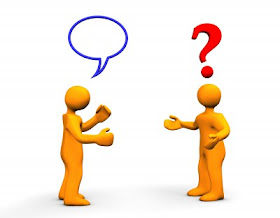How much time do you allow for people to catch up with new developments in disability language and ideas?
When I started out working in Independent Living, "crippled" was inexcusably insulting, unless used in a joking, in-group way among disabled people. "Handicapped" was just barely out date, but still very common; our general approach was to correct it kindly and patiently. "Person with a disability" was the ideal, and using it marked you as someone with a strong, progressive disability consciousness.
Today, 25 or so years later, hearing "handicapped" hurts to hear, and marks a person as hopelessly out of date. "Person with a disability" is in rough parity with "disabled person," but terminology is evolving fast towards "disabled person." Person First Language is in roughly the same position today that "handicapped" was 25 years ago. Some people honestly see it as an improvement over what came before, while others have left it behind. Advocates for Identity First Language give strong, passionate arguments in its favor, but say that they respect disabled people who still prefer to call themselves "person with a disability."
I see the same kind thing in disability-related thinking and practices. 25 years ago, most everyone agreed that large institutions were terrible for disabled people, and all but a few forward-thinkers viewed group homes as a progressive alternative. Sheltered workshops were generally viewed positively in the wider community, and were only beginning to be seriously questioned.
Today, I would view anyone who thinks group homes and sheltered workshops are awesome as well behind the curve, though I'm not sure yet that we are at the place where belief in these models can be fairly called shameful. I guess it depends on who I am talking to ... a random person in the community or someone familiar with disability issues.
On the other hand, people still talk about accessibility standards and the ADA like they are new requirements, even though the ADA just turned 25 and the first accessibility standards were published in the late '60s. And "inclusion" in schools, or, as we used to call it, "mainstreaming," is still often debated as if we are still pondering a new approach, when it's been the standard goal for education since the early to mid '80s ... at least on paper. To me, it's long past time for literally everyone to be on board with these things.
I think 25 years makes a pretty good grace period. If your thinking and practices around disability are older than that, I don't have much sympathy. But if you're still a little behind by, say, 10 years, we can talk.
How long is your grace period for social change?
----------

